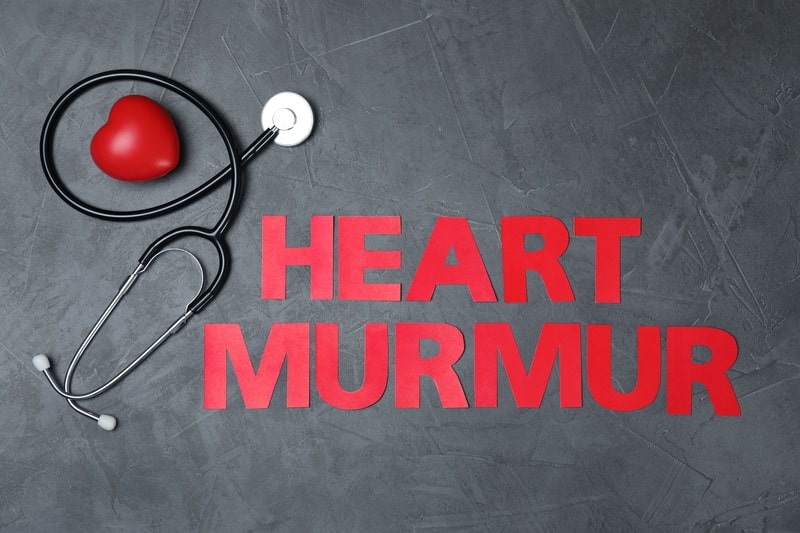Heart Murmurs
Heart murmurs are a common finding during physical examinations by healthcare professionals. If detected, particularly in adults, it is important that they are investigated to ensure that you have a healthy heart, even in the absence of symptoms.
Introduction
A heart murmur is a type of additional sound, heard when a healthcare provider listens to your heart with a stethoscope. They are caused by turbulent blood flow within the heart, with the most common causes being heart valve problems (restriction or leakiness of a valve), holes within the heart (congenital heart disease) or fast flow of blood through the heart for other reasons (e.g. anaemia).
As murmurs can be a signal of an issue within your heart, they should be investigated with further tests, unless the treating healthcare professional is sure that they are innocent. Often the first test to consider is a surface (transthoracic) echocardiogram scan, which is an excellent preliminary scan to assess your heart valves and to investigate for heart muscle issues. If further information is required about your heart valves or muscle, Dr Jordan can supplement this with an MRI scan or a more specialised form of echocardiogram scan (e.g. transoesophageal echocardiogram).
If your murmur is found to be due to a heart issue, Dr Jordan will advise either monitoring with further appointments or a treatment plan, depending on the severity of the issue detected.
What Are Heart Murmurs
Heart murmurs are heard when listening to the chest with a stethoscope, being caused by turbulent blood flow within the heart. By timing the extra sound with the heartbeat, assessing the character of the sound and listening for any further changes to a normal heart’s sounds, it is possible to gauge the likely cause of the murmur. Nevertheless, it is usually advisable to determine this definitively with a heart scan, usually an echocardiogram scan in the first instance.
How Common Are Heart Murmurs
Innocent heart murmurs are common, particularly in children. However, the American Heart Association reports that 2.5% of people have valvular heart disease, frequently without any symptoms, and it is therefore important that heart murmurs are actively investigated to exclude this possibility.
Causes
Some heart murmurs are caused by the fast flow of blood through a normal healthy heart. These are termed innocent murmurs and occur in the absence of heart disease.
However, the most common cause of a heart murmur in adults is a heart problem, in particular disease of the heart valves. Other causes include a heart muscle issue or holes between chambers within the heart (congenital heart disease).
Symptoms
Although there are no specific heart murmur symptoms, the underlying cause of the murmur can result in symptoms of breathlessness, chest pain, loss of consciousness, swollen ankles or heart palpitations.
How is a Heart Murmur Diagnosed?
Heart murmurs are diagnosed when listening to the heart with a stethoscope. This may be because you see a healthcare professional with symptoms or as part of a routine examination. The cause of the murmur can then be investigated further, usually with an echocardiogram scan in the first instance, to look for issues with your heart valves in particular.
How are Heart Murmurs Treated?
Heart murmur treatment depends on the underlying cause. Innocent heart murmurs require no treatment, some conditions requiring monitoring only, whereas others may require medication and/or surgery.
Conclusion
Heart murmurs are a type of extra sound which can be heard when a trained healthcare professional listens to the heart. In adults, further heart tests are almost always needed, to ensure that your heart is in good health.
You may be interested in reading other heart condition: Chest Tightness
